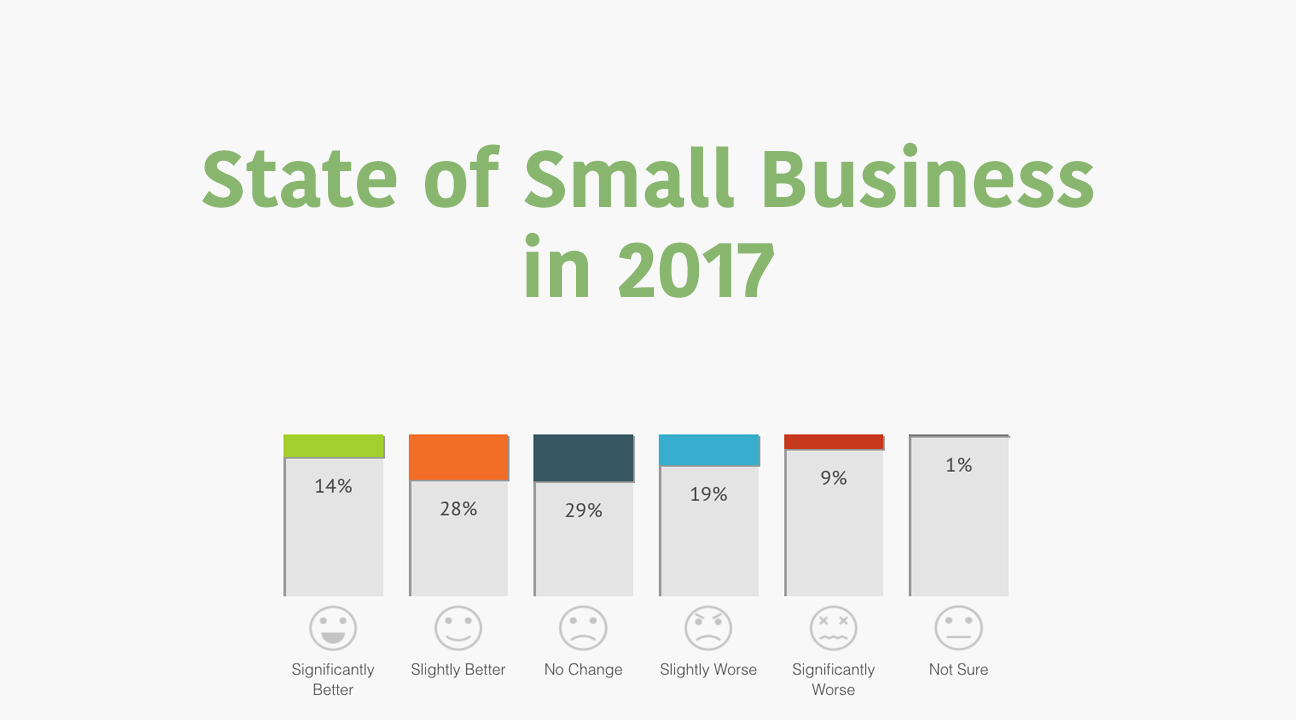Where do we go from here, practically sounds like a couple breaking up — but these days, the number of small businesses that fail are asking that same question. Business partners and teams closet themselves in the boardroom or even crowd themselves into the server room so employees don’t hear chilling question asked, “Where do we go from here?” In this post we’ll look at the State of Small Business for 2017 and how the new president will impact small business owners.
It seems that the cessation of some small businesses is the only message that gets splashed across the news, spread by the dooms-day-ers, the sad ones, the predictors of tragedies, the “Trump will sink the country”-ers, and the pessimists — among others. So, how do we know what the truth really is for business in 2017, and beyond?
A few statistics have recently surfaced which show that business failure is actually on a long- term slow decline currently. A Professor at Case Western Reserve University, Scott Shane, noted this week that employers in America who are failing at their businesses has fallen 30 percent since 1977. But, the number of people becoming new business owners has also declined, as well.
The cause of decline in entrepreneurs starting new businesses in the first place, has a multi-faceted collection of factors. One of the largest components of businesses having a lower fail percentage than has previously been seen, seems to indicate that entrepreneurs, businessmen and businesswomen are being more careful and selective in what they are producing, both in goods and in services.
People are not beginning a startup merely on a whim, just to see how it will turn out. More care, scrutiny and thought is being put into the new startup business decisions at the very beginning of the process. Studies are being conducted with quality precision and deeply informed questions are being asked. The testing of products and services are carefully weighed in the balance.
Determining how a startup will finance their business without giving half of the company assets away — is looked at more closely than ever before.
Basically, the entrepreneurs are learning “how- to” do all the processes better, which are required in building and maintaining a business. Those entering the entrepreneurship theater are more prepared than ever before. We are not talking AI (artificial intelligence), we are talking PI – personal intelligence.
The entrepreneur today is getting (and receiving) help and information earlier in the startup process. The new business owner is literally finding, combining, and executing on the optimal best practices –or they ascertain those people who have the knowledge to propel the company forward and they bring those gems onboard early.
Mentors can be found and are willing to actually — mentor. More thought is being put into the product or service that will be the backbone of the company.
If there are too many dry cleaners in an area, the savvy entrepreneur finds out all about this operation, sees there are too many dry cleaners in the area – and pivots, changes their area of focus and plans to something new and fresh.
People who are planning to start a business today, are searching further. Extending backward and forward for the best trends and pursuing. Penetrating each business subject on a deeper level. The Millennial entrepreneur and other entrepreneurs of today seem more profoundly ready than some of us were years ago. The information wasn’t available.
As a result of this intense absorption and assimilation of knowledge and better action practices, more and more, the entrepreneurs of today aren’t just trying to “disrupt” the same old businesses with a moderate fix. They are cutting a swath of refreshing newness. They are coming up with new thought and new ideas, and they’re putting extra effort into gaining precise knowledge about the intricate workings of business.
There is vast ocean of information available online, a tremendous cadre of mentors have come forward who are willing to give away their secrets and help the new entrepreneur – and there are entire businesses set-up just to be a part of the teaching and disseminating of valuable information and making it readily available to startup founders.
All of these conditions have set up a safer harbor for entrepreneurs going into business. They now understand better how to keep themselves from failure.
Of course, there are better, finely tuned technology and software programs that cover decades of traditional educational learning, which can be depended upon for reliable help. Then, we have those employees or founders who have been trained to run the new technology. All of these “helps” have increased.
The Millennial has made a big impact in the startup world that is taking place now, which was not there before and could not even have been conceived of 30 or 40 years ago. Women and minorities, and those over 50 years of age, have finally taken their place in the entrepreneurial arena.
Many naysayers believed that the Millennial “entitlement” mentality would make them lazy — but we see them working smarter and harder. The Millennial is demanding a work/life balance and it seems to be driving business in the right direction.
But, then, could it be that all of the additional education the Millennial is garnering may actually be making a difference and be important? Most experts agree that this could be so – the world has never seen this phenomenon before, of complete dominance over education from an entire generation. Who knew that knowing something about business before diving in might be important?
Who imagined growing up in a more diverse world, would make such a difference in the quality of the businesses currently being grown.
We cannot forget, either, that all of the Millennial’s were born – actually born — with cell phones in their hands. Computers were right there waiting for this generation.
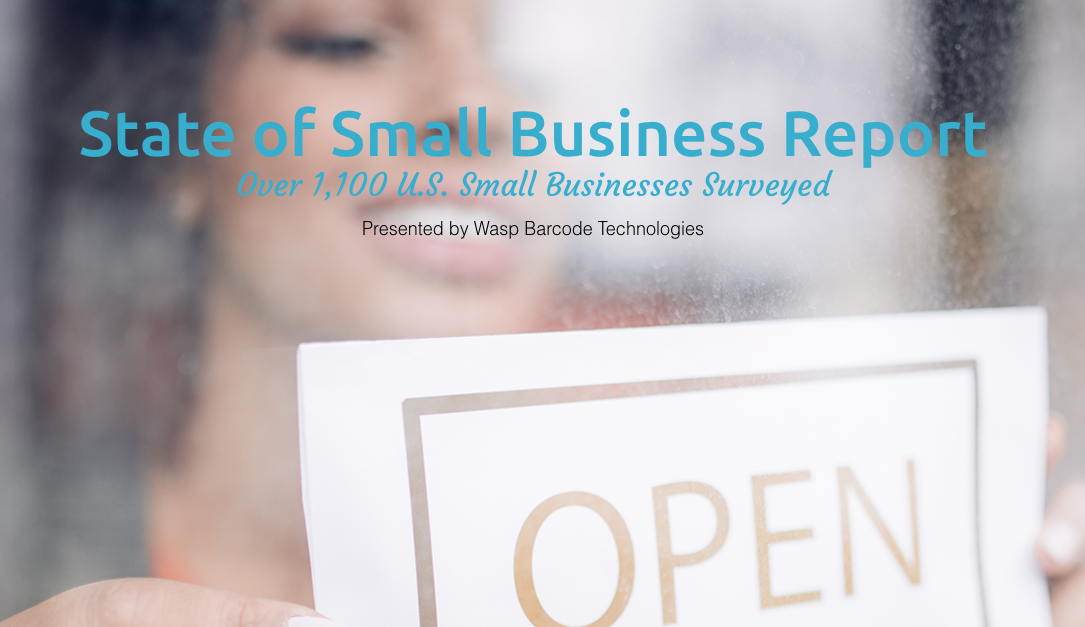
The State of Small Business in 2017
Wasp Barcode put out their annual State of Small Businesses report. This has been one of my favorite reports to look at over the previous couple years. It’s a wealth of information on small business owners and the future of business in 2017.
I was excited to see this (above) report on the state of small business. Each question is separately and singly shown. The exact questions are listed, you can look at the questions to what your own answers would be.
The answers have been compiled into all the charts and graphs. This is as you would expect from a professional paper in the final product. I read the questions separately and ask, “How would I have answered this question about my own personal business?
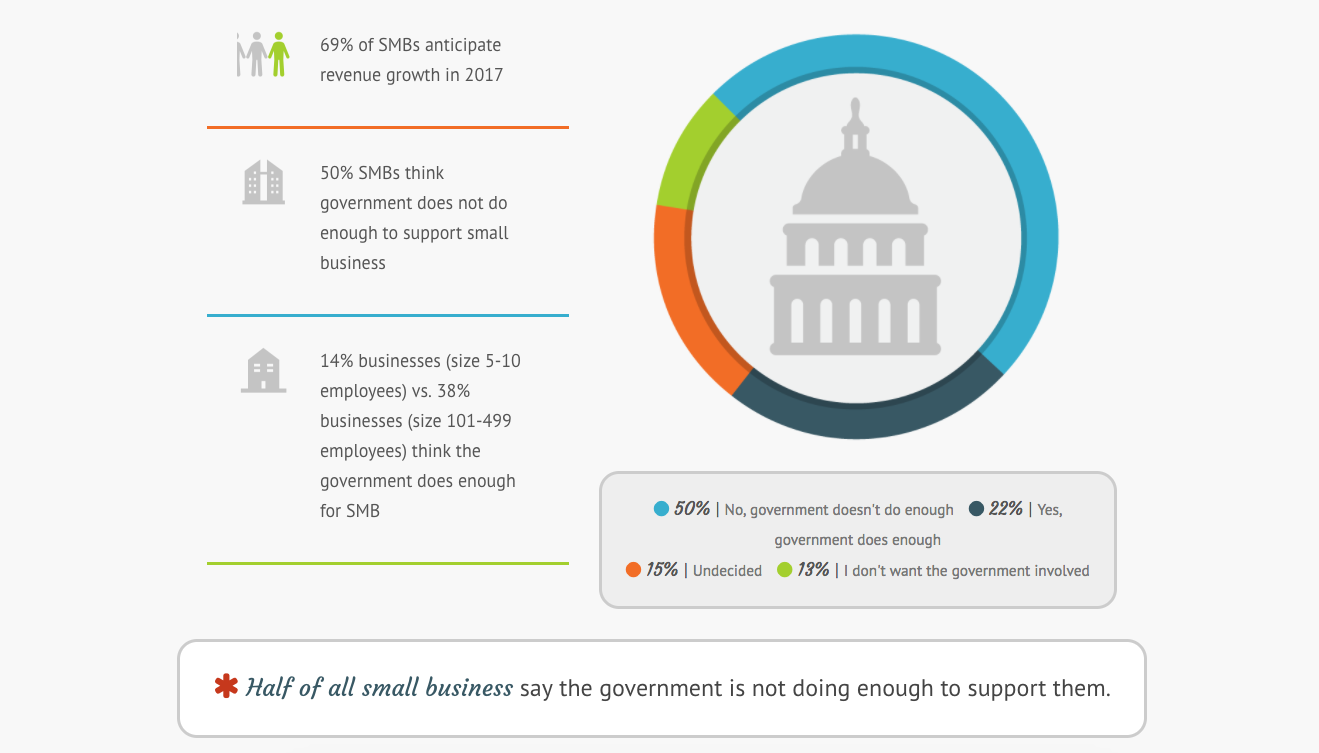
Views On Government Influence
One of the questions was about Views On Government Influence. On mobile you can pull up this information and each question scrolls through one by one. While you are (performing) giving your presentation.
Every person in the office had an opinion — on every question. These are great questions. One of the questions was about the 2016 Presidential Election and how it would impact business. You would have thought I set off a bomb in the building. The whole place exploded. I tried to act like I was concerned.
But secretly I loved watching the flare-ups that were set off by that question.
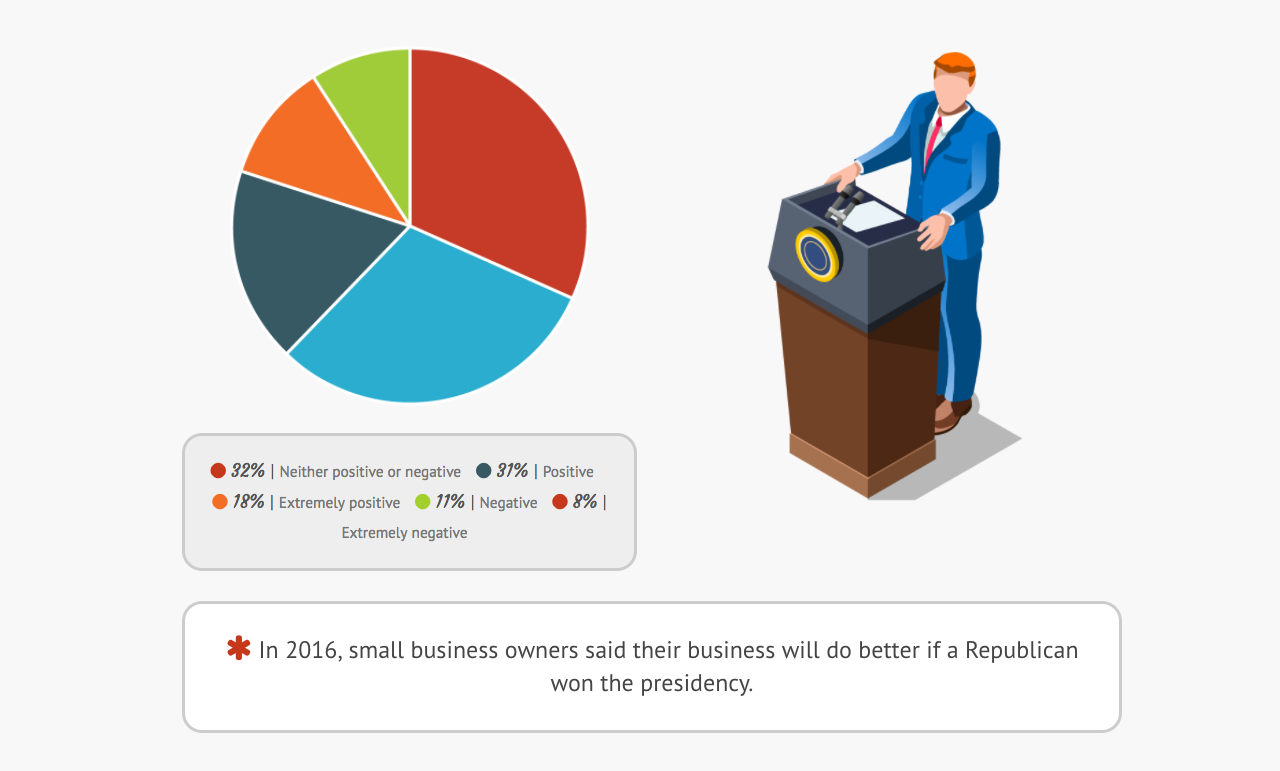
The state of small business, as reported, is in better shape than we’ve seen for a while. Read it. Believe it. Whether the election, the economy, the Millennials, the entrepreneurs, the Millennial entrepreneurs (you get the idea), is the true cause and effect of the state of small business.
This is a great time to get in the game and make your place in the business world.
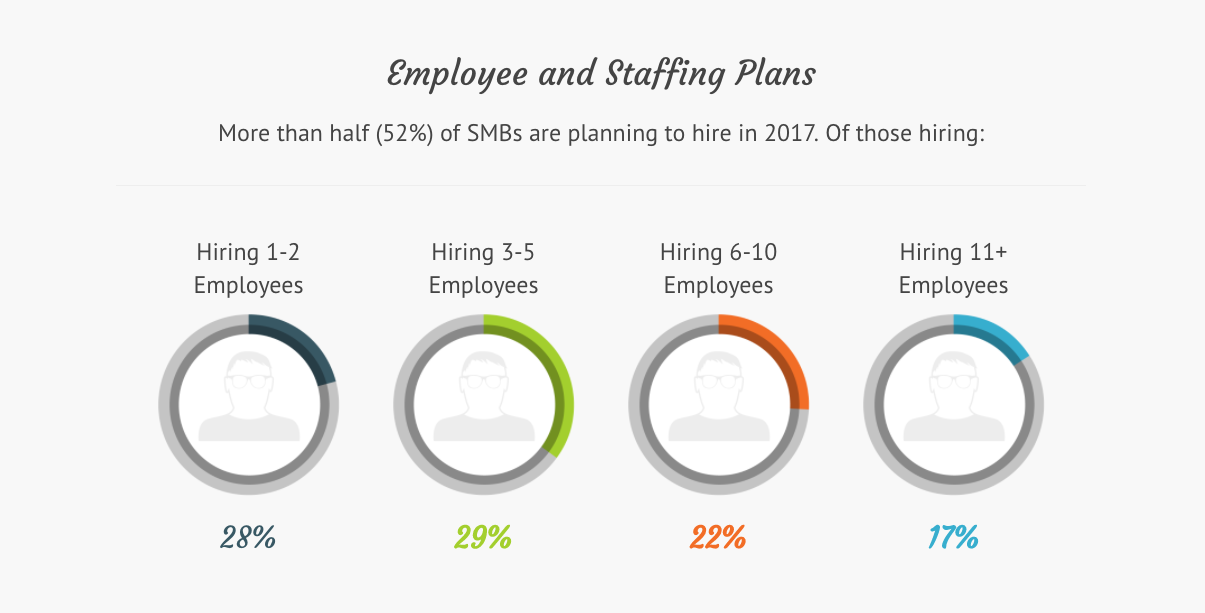
More than half of small business in the U.S. plan to hire this year. Email as a marketing tool is still near the top, only word of mouth outpaces it. One of the biggest surprises is — nearly half of all small business doesn’t track their inventory. This just does not make sense. It seems we are figuring out how to do small business better than we have before.
Where do we go from here? Forward.

